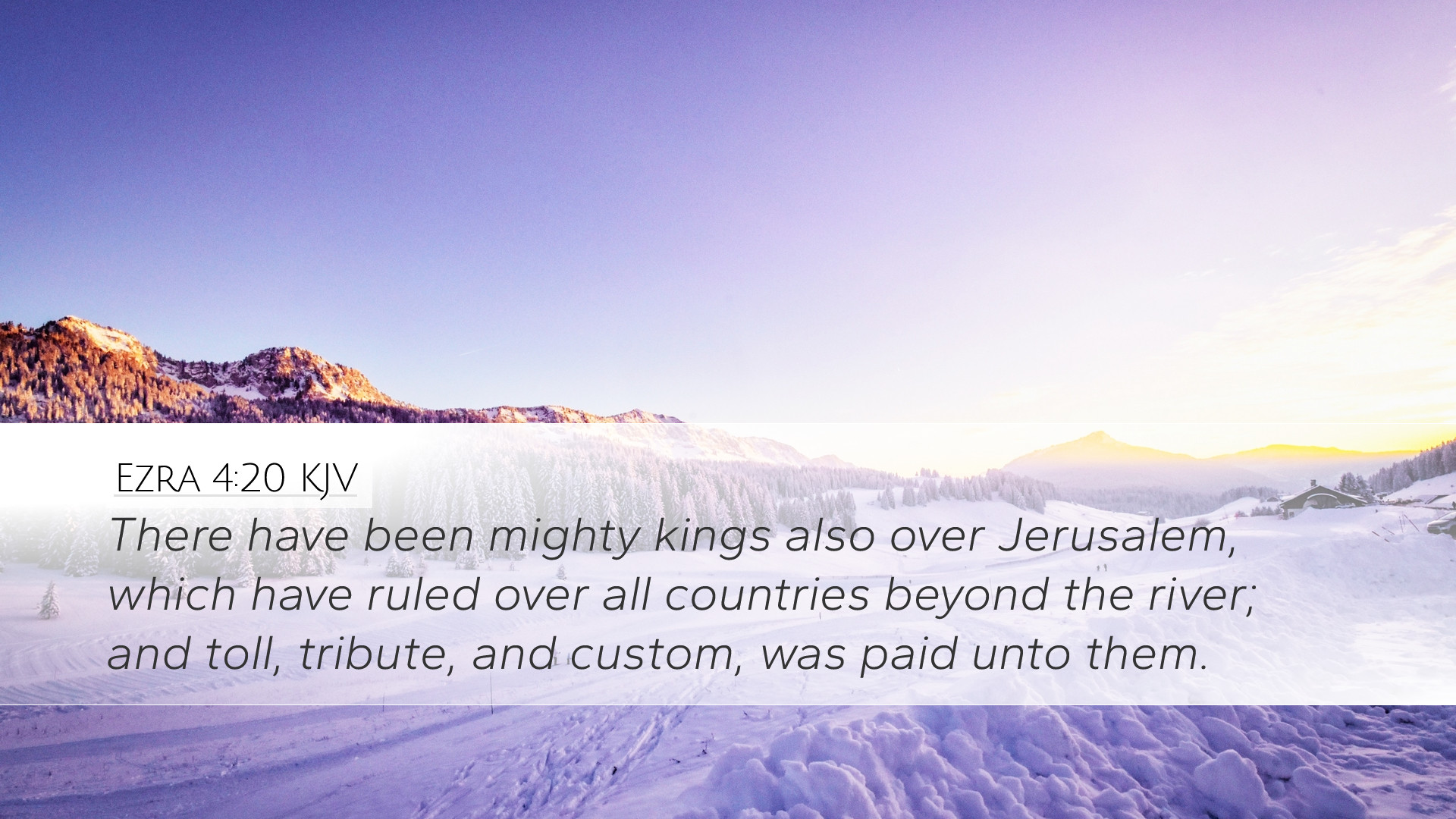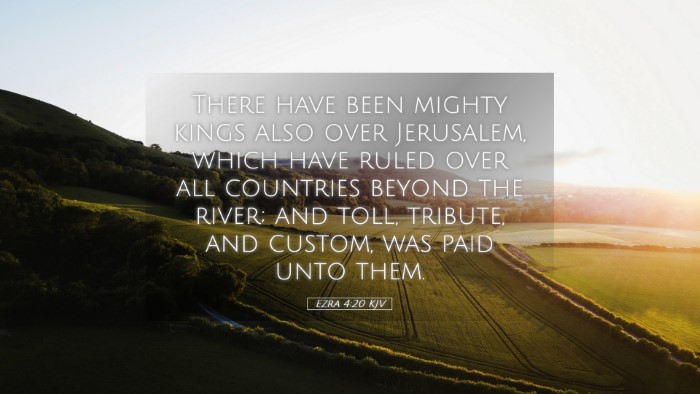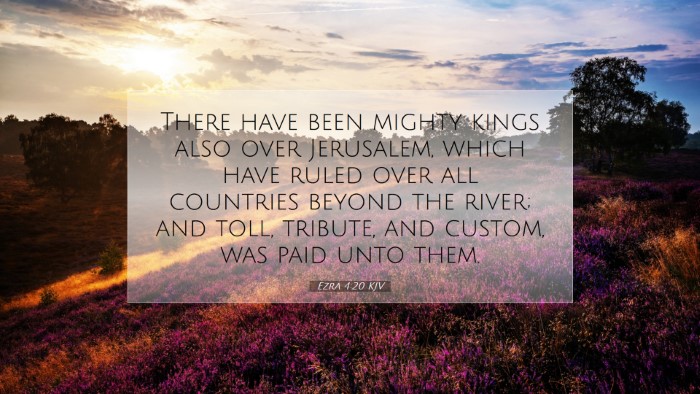Old Testament
Genesis Exodus Leviticus Numbers Deuteronomy Joshua Judges Ruth 1 Samuel 2 Samuel 1 Kings 2 Kings 1 Chronicles 2 Chronicles Ezra Nehemiah Esther Job Psalms Proverbs Ecclesiastes Song of Solomon Isaiah Jeremiah Lamentations Ezekiel Daniel Hosea Joel Amos Obadiah Jonah Micah Nahum Habakkuk Zephaniah Haggai Zechariah MalachiEzra 4:20
Ezra 4:20 KJV
There have been mighty kings also over Jerusalem, which have ruled over all countries beyond the river; and toll, tribute, and custom, was paid unto them.
Ezra 4:20 Bible Commentary
Commentary on Ezra 4:20
Verse: "And there were mighty kings also over Jerusalem, which had ruled over all countries beyond the river; and toll, tribute, and custom, was paid unto them."
Introduction
The verse from Ezra 4:20 provides a context that is deeply entrenched in the historical governance of Jerusalem and the surrounding regions. This commentary amalgamates insights from several public domain commentaries to explore its theological implications and historical significance for readers today.
Contextual Background
Ezra 4:20 is set against the backdrop of the post-exilic period, which marks the return of the Israelites from Babylonian captivity. Upon their return, the Jewish people faced both external opposition and internal challenges. Understanding this context is crucial for grasping the significance of the text.
The Historical Leaders
- Mighty Kings: The reference to "mighty kings" alludes to the dominance of foreign powers that had required tribute and customs from the regions under their control.
- Historical Figures: Commentators suggest that this may refer to notable figures such as the Babylonian kings and later the Persian rulers who exerted influence over Jewish governance.
Theological Insights
The verse invites readers to contemplate the sovereignty of God over the affairs of nations. The juxtaposition of 'mighty kings' with the struggles of the Jewish community illustrates the tension between earthly powers and divine authority.
God's Sovereignty
Matthew Henry emphasizes that while these kings wielded great power, it is God who ultimately orchestrates the rise and fall of rulers. The Israelites’ return was part of God's divine plan, despite the might of opposing nations.
Human Authority and Its Limits
Albert Barnes cautions against the idolization of earthly authority. The kings' power carried with it responsibilities and the expectation of justice and righteousness. This is a reminder to contemporary leaders of their accountability before God.
Application for Today's Believers
Ezra 4:20 has profound implications for pastors and theologians who engage with issues of governance and authority in modern contexts. The passage encourages believers to recognize the ultimate authority of God while navigating the complexities of human leadership.
Reflection on Leadership
- Integrity in Leadership: Like the rulers mentioned, leaders today must seek to govern with integrity, acknowledging their accountability to a higher power.
- The Role of the Church: The Church is called to pray for governing authorities (1 Timothy 2:1-2), acknowledging that while leaders have been placed in their roles, the heart of the king is in the hand of the Lord (Proverbs 21:1).
Encouragement in Trials
Furthermore, during times of struggle and opposition, believers can take heart knowing the same God who guided the Israelites is at work today. Our trials do not hinder His ability to enact His will through the nations.
Conclusion
In conclusion, Ezra 4:20 serves as a powerful reminder of God's sovereignty amid the changing tides of human authority. It encourages a balanced perspective on leadership, responsibility, and the role of faith within societal structures.
As we reflect on this verse, may we gain insight into the nature of divine governance and our responsibilities as leaders and followers in God’s Kingdom. The history of Jerusalem, as noted in this scripture, is not merely a story of past rulers but a testimony to God’s enduring presence in the affairs of humanity.


